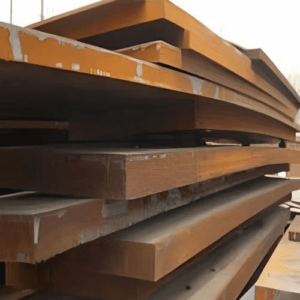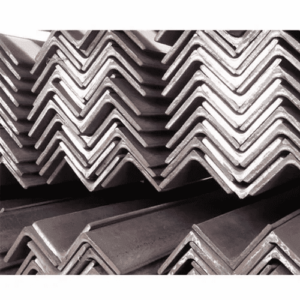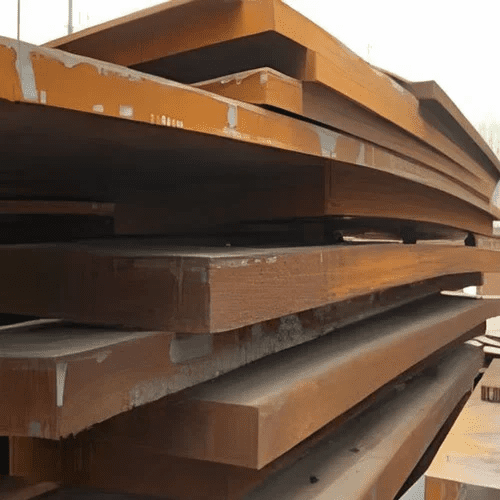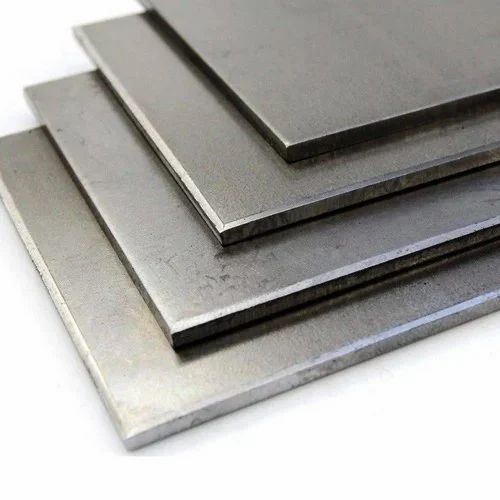Understanding the Difference Between Corten steel and Mild Steel
When it comes to choosing the right type of steel for your project, understanding the differences between various types is crucial. Two common options that often come up in discussions are Corten steel and mild steel. While they may appear similar at first glance, they serve different purposes and offer distinct characteristics. In this blog post, we’ll delve into the nuances of Corten and mild steel to help you make informed decisions for your applications.
Corten steel is a type of steel alloy that develops a protective layer of rust when exposed to atmospheric conditions. This unique characteristic sets Corten steel apart from traditional steel types. The rust-like appearance not only adds aesthetic appeal but also serves as a protective barrier against corrosion, eliminating the need for painting and maintenance in many applications.
Corten steel was originally developed for railway coal wagons in the 1930s but has since found its way into architectural, landscaping, and outdoor structural applications due to its weather-resistant properties.

Understanding Mild Steel
Mild steel, also known as carbon steel, is a widely used form of steel known for its affordability, versatility, and ease of fabrication. Unlike Corten steel, mild steel does not contain significant alloying elements to enhance weather resistance. As a result, it is more susceptible to corrosion and requires protective coatings or regular maintenance to prevent rusting in outdoor environments.
Mild steel is commonly used in construction, manufacturing, automotive, and machinery industries due to its strength and malleability. It serves as a foundational material for a wide range of structural and engineering applications.

Key Differences Between Corten and Mild Steel
Weather Resistance: The primary distinction between Corten and mild steel lies in their weather resistance. Corten steel develops a protective layer of rust that acts as a natural barrier against corrosion, while mild steel requires additional protective measures to prevent rust formation.
Aesthetic Appeal: Corten steel is prized for its rustic appearance and natural weathering process, making it a popular choice for outdoor sculptures, architectural elements, and landscape features. Mild steel, on the other hand, offers a more traditional metallic appearance and requires surface treatments for decorative purposes.
Durability: Corten steel exhibits exceptional durability in outdoor environments, withstanding exposure to harsh weather conditions, UV radiation, and atmospheric pollutants. Mild steel, although strong and durable, may experience corrosion and degradation over time without proper maintenance.
Cost Considerations: While Corten steel may have a higher initial cost compared to mild steel, its long-term durability and low maintenance requirements can result in cost savings over the lifespan of the structure or application.
Engaging FAQs
Is Corten steel suitable for indoor applications?
- While Corten steel is primarily used for outdoor applications due to its weather-resistant properties, it can also be used indoors for decorative purposes.
Can mild steel be used in outdoor environments?
- Yes, mild steel can be used outdoors, but it requires protective coatings or regular maintenance to prevent corrosion and rusting.
Does Corten steel require any special fabrication techniques?
- Corten steel can be fabricated using standard techniques for cutting, welding, and forming, although some precautions may be necessary due to its weathering properties.
How long does it take for Corten steel to develop its characteristic rust layer?
- The timeframe for Corten steel to develop its protective rust layer depends on environmental factors such as humidity, air quality, and exposure to moisture, typically ranging from several weeks to several months.
Can Corten steel be painted over?
- While Corten steel is often appreciated for its natural rust finish, it can be painted over if desired. However, the protective rust layer will no longer be visible once painted.

Mob No:- 8447070292, 9811191193, 9899747099
Email Id: sales@sssmgroup.com, info@shivshaktisteelmetals.com







